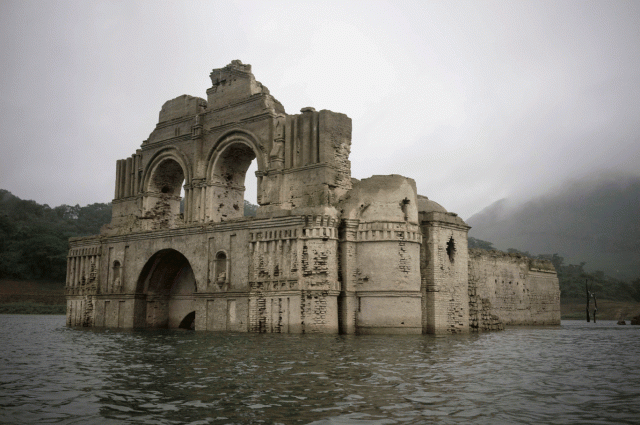In the mid-16th century, the Mexican Temple of Santiago was built, reportedly by a group of monks. Due to a drought in that area of Mexico, the church is now reappearing from under the waters.
During the past year, Chiapas, Mexico has been under severe drought conditions which caused the level of a nearby reservoir to lower by 82 feet. Although this has caused much hardship in the area due to the lack of water, a silver lining has come forward in the way of this lost Temple.
It is thought that the temple was built by monks that were led by Friar Bartolome de la Casas. In the mid-16th century, they came into the area with Spanish settlers. After the Mexican Temple of Santiago was built, it was used until approximately 1776, when it was abandoned due to plagues that swept through the area. Epidemics were relatively common at that time, due to settlers arriving from across the ocean and introducing, viruses and bacteria to the New World.

In 1966, a dam was completed in the area and the church was flooded, disappearing under the water for almost 4 decades. It appeared in 2002 during a severe drought and during that time, people were even able to walk around inside of the church until the waters went back up again. A local fisherman said that he would do business in the area as people came to hang out and eat.
Fishermen have been taking advantage of the lower waters by giving people trips on boats to the nearby church. It allows them to explore the Temple firsthand.
Low water levels in a reservoir in Chiapas, Mexico, have revealed the ruins of the 16th century Temple of Santiago. pic.twitter.com/rxdEp4BLoJ
— Besho (@be_sh_oy) October 18, 2015
#Temple of Santiago/Quechula emerges from the water in Nezahualcoyotl reservoir in #Mexico. pic.twitter.com/IF9Z1qOuzM
— Gray (@grayle) October 19, 2015

